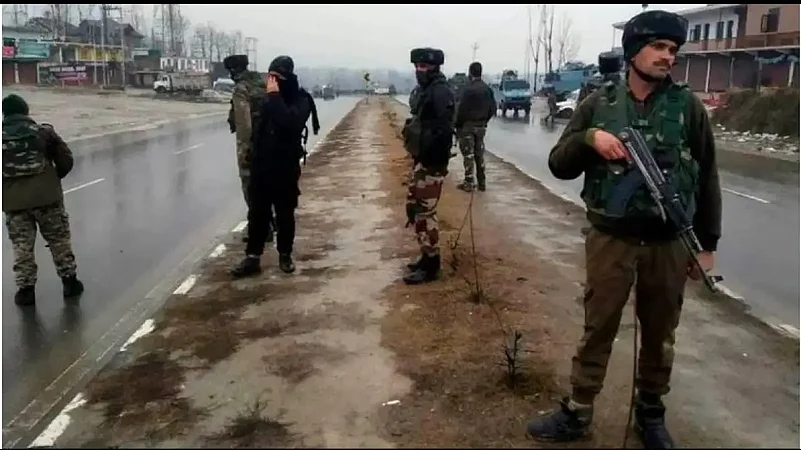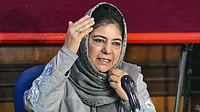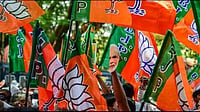When the Union government revoked Article 370 amid communication blockade and arrests of thousands of people including three former chief ministers on August 5, 2019, the government said that the move will usher development in Jammu and Kashmir and at the same time will end violence. The Bharatiya Janata Party (BJP) claimed the new dawn in J&K is emerging and called it Naya Kashmir.
Three years down the line, there is no elected government in J&K. Target killings have gained the pace, even as encounters take place regularly. However, tourism has picked up as this year alone half a million tourists have visited Kashmir, which the government sees as a sign of normalcy. At the same time, Kashmiri Pandits, who didn’t migrate, are seeking relocation for from the Valley calling it unsafe.
No elections
The BJP withdrew its support from the Peoples Democratic Party (PDP)-led government in J&K in June 2018 and there is no elected government in J&K since then. Earlier this year, Union Home Minister Amit Shah said that Assembly elections in J&K will be held after the completion of the delimitation process and statehood will be restored once the situation in the union territory becomes normal.
He further said, “As far as the democratic process is concerned, the delimitation process has started. After its completion, we will hold the [assembly] elections. Some people have said many things, but I want to tell you that I had given assurance in Parliament that the statehood of Jammu and Kashmir will be restored. Once the situation in Jammu and Kashmir becomes normal, the statehood of Jammu and Kashmir will be restored."
The Delimitation Commission has completed its exercise giving six more seats to Jammu and only one to Kashmir. Of the 90 Assembly constituencies in Jammu and Kashmir, 43 will now be part of Jammu and 47 of the Kashmir region. Nine seats have been reserved for scheduled tribes, out of which six are in the Jammu region and three are in the Kashmir Valley. The Commission has also recommended two seats for Kashmiri Pandits and four for Pakistan Occupied Kashmir (POK) refugees.
The National Conference (NC) and the PDP have already rejected the Commission’s report.
The NC has said, “No amount of gerrymandering will change the ground reality which is that whenever elections are held the voter will punish the BJP and its proxies for what they have done to J&K over the last four years.”
PDP President Mehbooba Mufti has said, “We have always maintained that the Delimitation Commission was meant only to execute the political game plan of BJP in Jammu and Kashmir and divide people on communal lines.”
While the Delimitation Commission has now submitted its report, there is no talk of elections and the restoration of statehood. The government’s focus is on curbing the rising violence in J&K.
Since August 2019, Jammu and Kashmir administration and the central government are projecting J&K as a destination for investors. Earlier this year, the government-held real estate summit in Jammu with Lieutenant Governor asked every Indian to have a house or flat in J&K. However, the government has not presented any figure for outside investors so far.
In 2020, the then Union Minister for Law, Justice, Communication and IT Ravi Shankar Prasad visited the Sopore area of north Kashmir, saying Kashmir would soon witness a new dawn of peace and development. Prasad was part of a 37-member ministerial delegation that visited J&K in January that year and inaugurated a host of projects and works from tube wells, lanes, drains, and road protection walls to a two-lane bypass road.
Killings continue
As per the government data, until February this year, 439 militants, 109 security personnel and a total of 98 civilians —84 of them Muslims— were killed in Jammu and Kashmir since Article 370 was repealed.
Since January this year, 100 militants have been killed in different encounters. Among civilian minority killings by militants, three Hindus were killed between August 5, 2019 and December 31,2019; two people including one Kashmiri Pandit in 2020; nine people including three Kashmiri Pandits (among them noted chemist Makhan Lal Bindroo) and six other Hindus were killed in 2021.
Minister of State (MoS) for Home Nityanand Rai informed the Rajya Sabha on April 6 that killing of those from the minority community in the Kashmir valley peaked in 2021, as since 2019 four Kashmiri Pandits among 14 Hindus were killed by terrorists.
“Four Kashmiri Pandits were killed by terrorists in J&K since 2019, while 10 other Hindus were also killed by the militants during this period,” Rai said.
Most of these attacks on persons belonging to minorities have been claimed by a group that calls itself The Resistance Front. It’s an armed group that surfaced in 2019 in the region. The police in the region say that the group is an offshoot of Pakistani-based Lashkar-e-Taiba.
In February this year, the Union Ministry of Home Affairs informed the Parliament that the government of Jammu and Kashmir has appointed 1,697 migrant Pandit persons since August 5, 2019, and has selected additional 1,140 persons.
Later in April, the government told the Parliament about 2,105 migrants (Kashmiri Pandits) had returned to Kashmir Valley for taking up jobs provided under Prime Minister’s Development Package. In a written reply to a question, the government said a total of 841 appointments were made in 2020-2021 followed by 1,264 in 2021-2022.
On the killing of Hindus along with Kashmiri Pandits in Jammu and Kashmir since August 2019, the government said, “A total of 14 people, including four Kashmiri Pandits and 10 other Hindus, were killed by the terrorists in Jammu and Kashmir from August 5, 2019, till March 24, 2022.”
Precarious situation
Former Chief Minister Omar Abdullah, while referring to the claims made after the abrogation of Article 370, says the constitutional provision was projected as the root cause of terror, violence, and separatism in Jammu and Kashmir.
He says, “A lot of people bought into that argument and we are now almost three years into that development but none of that seems to have been borne out on the ground. Violence is where it is today, targeted killings are a reality that we are struggling to come to terms with.”
While the BJP leaders were not available for comment, PDP leader Naeem Akhtar says that the BJP’s Kashmir policy has flopped so miserably that it now needs a complete reversal.
He adds that the constitutional status of the state was revoked “with the promotion of an idea that it was a territorial expansion of Hindu Rashtra”.
“Unfortunate for a country as diverse as India, this led Hindutva protagonists down a dangerous path that has led to the current foreign policy crisis,” says Akhtar.
He added, “At home, it only added to the maintenance cost of the territory’s facade of calm with everything from a Pandit school teacher to a religious yatra, a village-level representative to a BJP nobody needing security assistance at almost the level of an active war. This situation, in the long run, is unsustainable and the sooner the leadership understands the need to speak to its citizens in Kashmir without a gun aiming at him/her, the better it is.
“Kashmir has always responded positively to civil, compassionate, democratic outreach by the Centre. There may still be a chance for that. No harm in giving it a try when everything else has failed.”
Iltija Mufti, daughter of former Chief Minister Mehbooba Mufti, says, “Through the illegal and unconstitutional abrogation of Article 370, the BJP may have created a Naya Kashmir. But it is an open-air prison where disempowering farmaans and edicts are issued from Delhi with the sole purpose of bringing Kashmiris to their knees.”
Pandits, she says, too are simply fodder for them and their pain has been used and exploited to further BJPs divisive agenda.
She says, “This is obvious from the callous treatment meted out to the minorities in Kashmir by the manner in which LG admin has locked them up in residential colonies like cattle.
“How many of us Muslims, Pandits, Sikhs from J&K will keep paying a price with our lives to maintain GoI’s false facade of normalcy? What will it take for them to acknowledge the elephant in the room?”






















